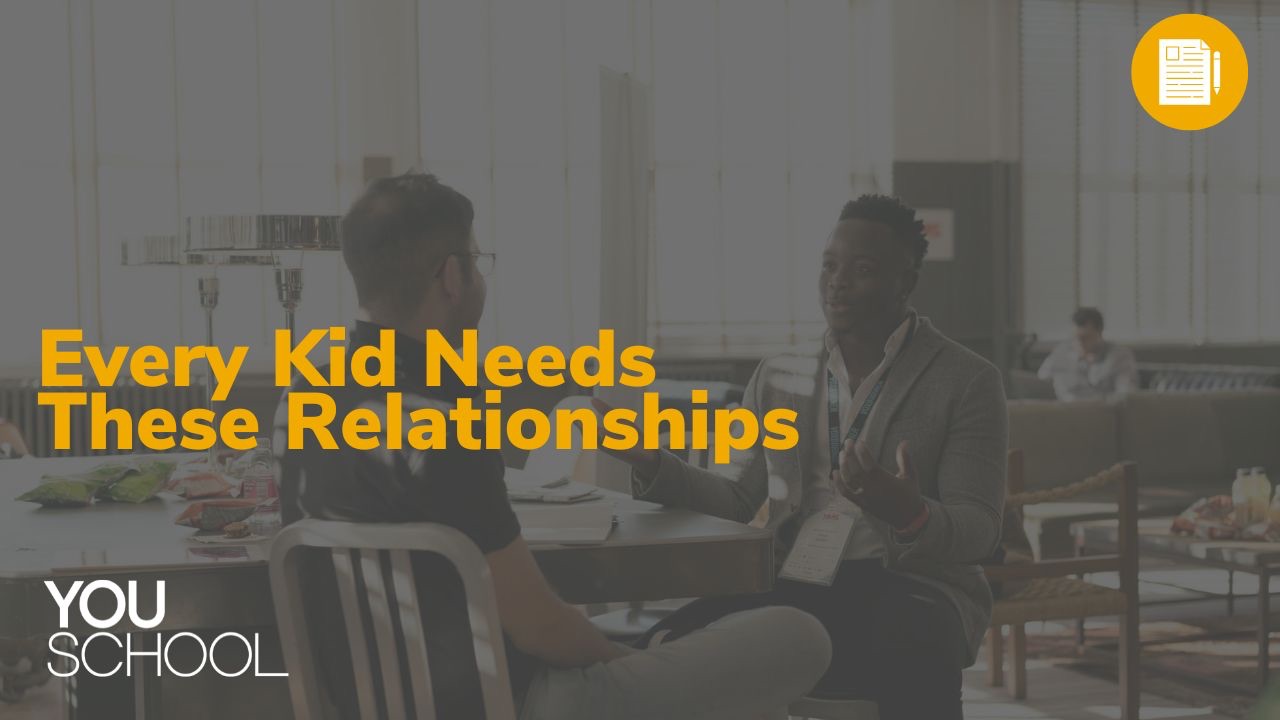Every Kid Needs These Relationships

It’s no secret that human beings are relational creatures. But as loneliness is on the rise and sits at the epicenter of a mental health crisis; still not enough attention is paid to the importance of relationships for the healthy development of a kid to an adult.
Kids need relationships like babies need nurture. They can’t thrive without them. But who do they need, and what do they need from them?
- FAMILY: kids need to grow up in a safe, nurturing environment. But what specifically do they need from their family as they transition and travel through adolescence? They need to experience the grounding effect of a firm foundation by learning and remembering who they come from. In other words, they need to feel rooted in their family. Read more about how to help a kid understand where they come from here and the importance of family traditions here.
- FRIENDS: It’s hard to determine how many friendships a kid needs, but it’s a little simpler to understand the types of friends every kid needs. They need a consistent buddy, someone they can count on to do social activities with. They need a confidante, someone they can be open with. And, they need a truth-teller, someone who will correct them if necessary as well as affirm their talents and personality. Read more about how to help your kid build healthy friendships here.
- ADULT ADVISORS: the best research shows that every kid needs five engaging adults to transition well to healthy adulthood. They need adults who will affirm and validate them—their ideas, ambitions, and talents. They need adults who will show interest in them—communicating their inherent worth and value. And they need sponsors—adults with have access to opportunities who are willing to take initiative and open doors for them.
Kids need validation from real people, and the more face-to-face, the better. They need people to journey through life to help them figure themselves out and the world around them. Family, friends, and adult advisors who will be accurate and consistent mirrors to them. People who will build their self-confidence and teach them the importance of putting others first. They need to be affirmed in their personality and in their worth. They need help in discovering their beliefs, values, and priorities. In short, they need relationships to go through identity formation properly.
We certainly can’t control who our kids build relationships with, but we can still be directly involved. We can show them healthy, productive friendships by allowing them to hear us interact with our people. Let them listen to your phone calls, sit at the dinner table while you talk, and tell them stories about your interactions with them. We can guide kids to consider and reflect on the best makeup of a good friendship and community. We can lean in when they have friends over or in the car, showing genuine interest in them and building a relationship with them.
We can introduce them to healthy, successful, and engaging adults and create opportunities for our kids to build authentic relationships with them. We can invite our friends to be intentional with our kids, giving them permission to contact them, talk with them, and sponsor them to opportunities you don’t have access to.
P.S. What if there was a way to get the best resources to impact the kids in your life—delivered to you at the right time?
Check out our memberships for parents and educators.

